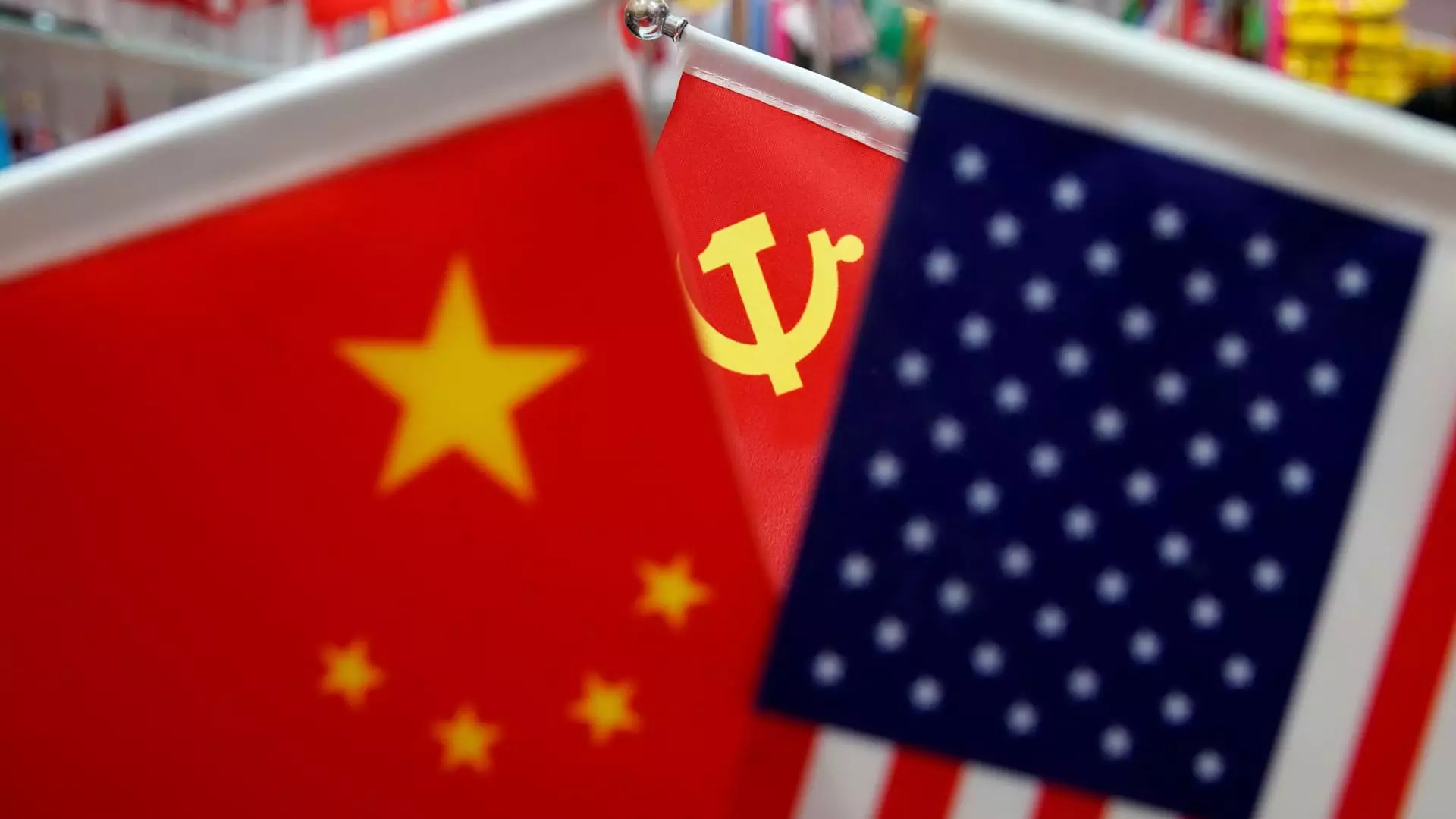In the complex world of international relations, few dynamics are as fraught with tension and uncertainty as the relationship between the United States and China. President Donald Trump’s recent comments regarding the arduous nature of negotiating with Chinese President Xi Jinping highlight the growing difficulties in achieving a stable and cooperative partnership. As both nations grapple with rising trade tensions, it is critical to analyze the underlying implications of their interactions and the precarious position they find themselves in.
Trump’s strange mix of admiration and frustration towards Xi encapsulates the paradox that defines U.S.-China relations. While he openly expresses a favorable view of Xi, he simultaneously labels him as “very tough” and “extremely hard to make a deal with.” This apparent duality reflects a broader trend in geopolitical discourse, where personal rapport often clashes with the hard realities of national interest. The reluctance of both leaders to compromise could further escalate tensions, leading to a standoff that neither side can afford.
Stalled Negotiations and Missed Opportunities
Recent statements from U.S. Treasury Secretary Scott Bessent indicate that trade negotiations are stagnating, underscoring the challenges that lie ahead. The promise of a trade agreement reached in Switzerland in May has turned into a sore point, with both nations accusing each other of breach. The expectations for a meaningful dialogue to resolve these issues appear to be dwindling, jeopardizing not only trade but also the broader relationship between the two largest economies in the world.
China’s reluctance to lift restrictions on rare earth exports adds another layer of complexity to this already tangled web. The expectations that this easing would accompany renewed diplomatic efforts seem naïve in hindsight. The U.S. response—to ramp up visa revocations for Chinese students—epitomizes a clumsy approach that prioritizes showmanship over careful diplomacy. Such actions sow distrust and hostility, all but ensuring that any negotiation will remain fraught with difficulty.
Communication Breakdown and Mistrust
The recent diplomatic engagement between the U.S. ambassador and Chinese Foreign Minister Wang Yi seems to signal an acknowledgment of the urgent need for dialogue. However, Wang’s strong stance regarding the “groundless reasons” for the U.S.’s actions reveals deep-seated resentment and mistrust. America’s insistence on addressing issues related to trade, fentanyl trafficking, and illegal immigration appears less like a genuine attempt to find common ground and more like a relentless pursuit of dominance.
This communication breakdown is emblematic of the larger issues that plague diplomatic relations today, where rhetoric often overshadows substance. Neo Wang, a leading economist, emphasizes the necessity for trust-building before any fruitful dialogue can occur. Yet, the road to restoring this trust is laden with obstacles, most notably the unpredictability of the Trump administration, which can undermine any agreements reached in private negotiations.
The Need for a New Approach
In an era defined by globalization and interconnectivity, a shift in strategy is imperative. Both nations must recognize that their respective outcomes are inextricably linked; unilateral action will oftentimes evoke a reciprocal reaction. Engaging in outreach that extends beyond mere trade demands may pave the way for a more workable relationship.
If the U.S. wishes to foster a constructive partnership with China, it must adopt a more nuanced approach to diplomacy that prioritizes mutual respect and understanding over rigid demands. Only by valuing the legitimate interests of both parties can meaningful progress be achieved. The days of cutting corners and hurling accusations must be left behind if either side hopes to foster a stable and mutually beneficial relationship.
In summation, the U.S.-China relationship stands at a crucial juncture. Constantly shifting policies, hardball tactics, and a lack of genuine dialogue threaten to unravel decades of diplomatic engagement. Only through a collective deviation from these ingrained practices can a vision for a cooperative future be realized, one that recognizes the stakes for both nations and the world at large.

